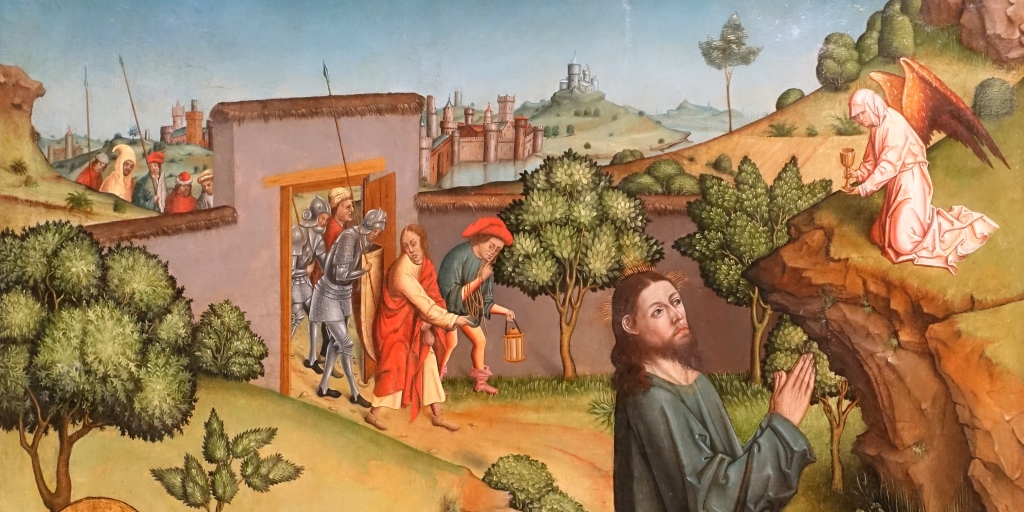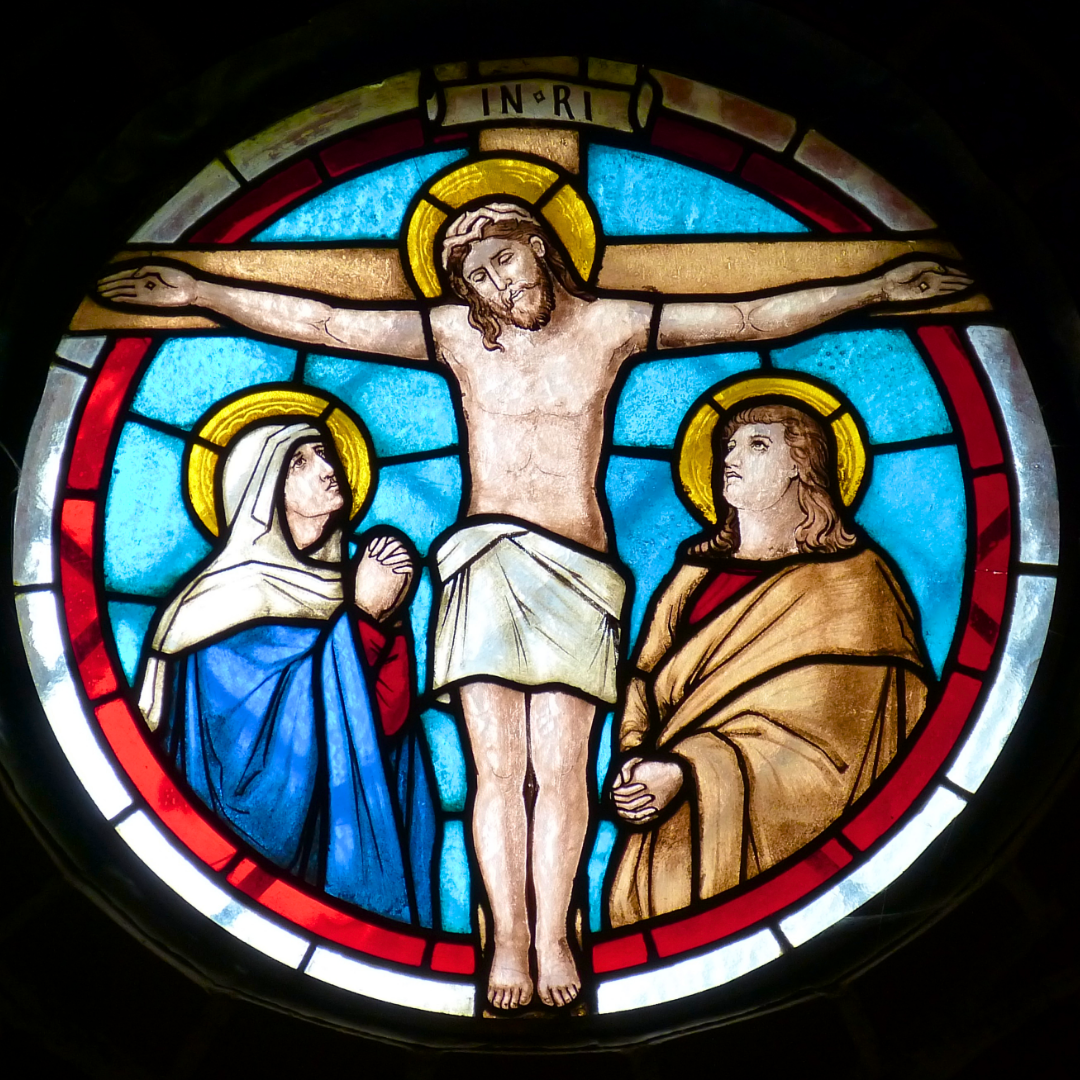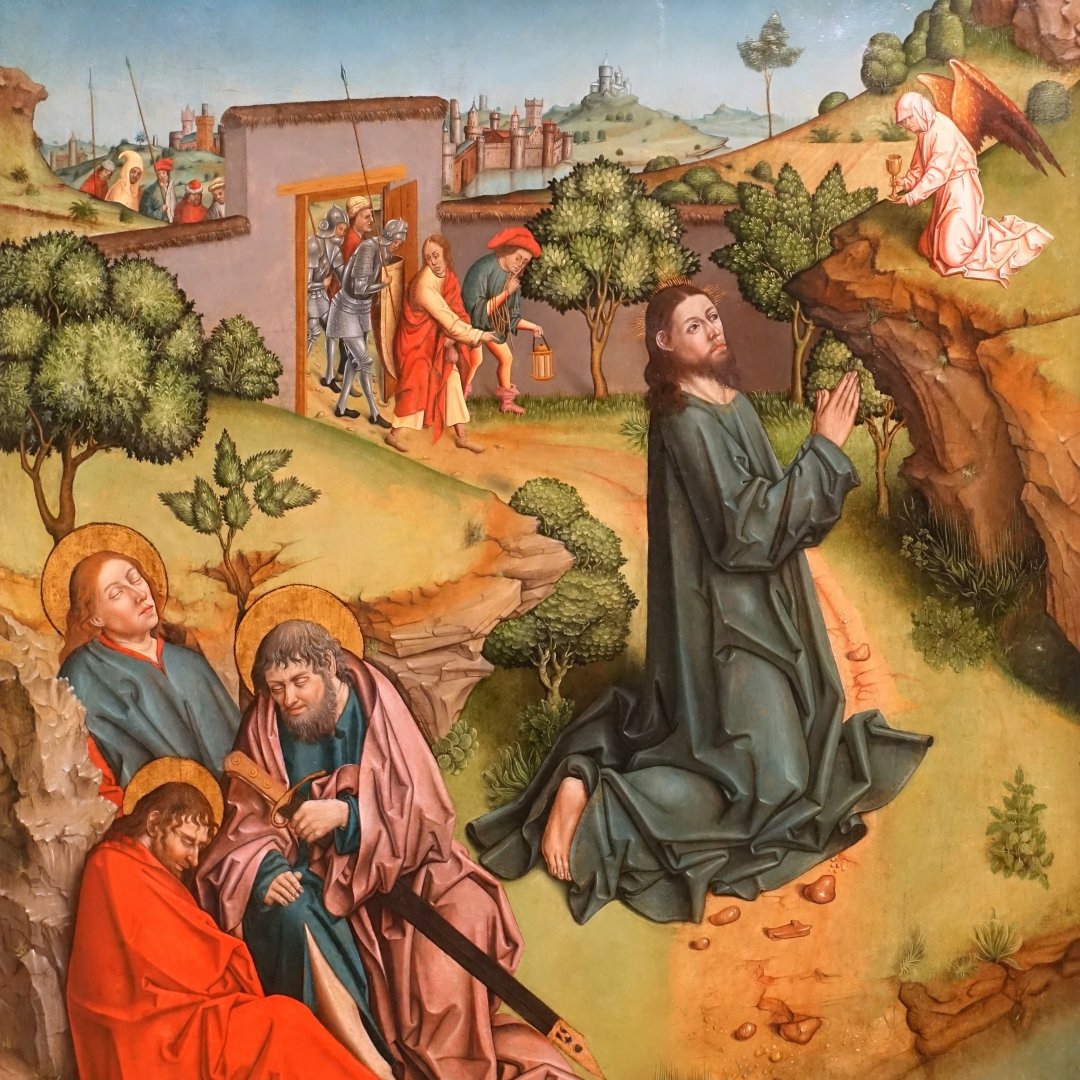
Flávia Ghelardi shares thoughts on the call of every Christian to make a second conversion, truly understanding God's call for our lives.
Flávia Ghelardi writes from Brazil in English and Portuguese. Vá para a versão em português.
On Ash Wednesday, when we received the ashes on our foreheads, we were invited: "Be converted and believe in the Gospel." But do we really need conversion? After all, we are already in church, we attend Mass at least on Sundays and holy days, we have already heard the call of Jesus and answered: "here I am." We have received the sacraments of Baptism, First Eucharist and even Confirmation; we have fulfilled the Church's commandments to pay tithes, to confess at least once a year, to fast and abstain from meat on Ash Wednesday and Good Friday. So how come I need conversion? Isn't this call only for sinners, those who are outside or away from the Church?
What is the second conversion?
Actually, for those who already have a spiritual life, who walk within the Church and keep the commandments, the call is for a second conversion. It is like passing from childhood to adolescence of faith.
Spiritual authors have often written also about this second conversion, which is necessary for a Christian who, after having seriously thought about his salvation and made an effort to walk in God's way, begins to fall back down the slope of his nature into a certain lukewarmness, like a plant that has been grafted in, but which tends to return to its wild state. (Fr. Garrigou Lagrange)
The second conversion of the Apostles
The Apostles also went through this second conversion. They were all called personally by Jesus and gave their "yes" to the mission. They witnessed all the preaching of the Kingdom of God, saw the miracles, were ordained priests at the last supper, and received the Holy Eucharist for the first time. But in the moment of the Passion, of suffering, almost all of them abandoned their Master. St. Peter, the first Pope, even denied Jesus three times.
Through this suffering that they experienced witnessing the Passion, each of them (except for Judas Iscariot, who did not believe in the infinite mercy of the Father), repentant of their cowardice of abandoning Jesus, underwent the second conversion. St. Peter, through the gaze of Jesus after his denial, had perfect contrition and was healed of his presumption, becoming humbler. St. John, the only one who by a special grace had the strength to remain at the foot of the cross, was converted when he heard Jesus' last words before He gave up His spirit.
Thus, one by one the apostles, in the period between the Passion and after the Resurrection, were converted for a second time and opened their eyes, really understanding what it means to be a Christian, as it is narrated in the passage of the disciples of Emmaus, who recognized Jesus in the breaking of the bread.

Called to Deepen Our Faith and Love
Just as the apostles needed to undergo a second conversion, we too are called to deepen our faith and love for Jesus. It is our imperfections that require this second conversion, especially our self-love, our tendency to want to do everything our way, imposing our will. This disordered self-love is the source of many venial sins, so this purification is necessary.
Although it is the best for our soul, God greatly respects our freedom and waits for our "yes" to His call to seek perfection, holiness. He knows that we love Him, but we are still too much attached to ourselves, to our wishes and our wills. And to get out of this state, it is necessary to let God act in our soul, through the purification of the senses.
This purification comes through an experiential knowledge of our misery and our deep imperfection, as St. Catherine of Siena tells us, along with a certain aridity of the soul, a sensitive estrangement from Jesus, without feeling consolation or pleasure in the practice of prayer and acts of piety. It is necessary that the Lord withdraws a little from the soul, so that it can detach itself from itself and from the things of this world, in order to be ready to give itself entirely to the Father.
Fruits of the second conversion
The fruits of this second conversion are, as with St. Peter, a beginning of contemplation by the progressive understanding of the great mystery of the Cross or Redemption, an understanding coming from the infinite value of the Savior's Blood poured out for us. With this nascent contemplation, there is a union with God that is freer from the fluctuations of sensibility, purer, stronger, more continuous. (Fr. Garrigou Lagrange)
We can experience joy and greater peace in our soul, even amid adversity. We truly experience that God loves us and cares for every detail of our lives.
How to get to that second conversion?
But how to reach this second conversion? God is extremely kind and will not do anything without our consent, so we need to ask for the grace of this deepening in faith and love. "I do believe, help my unbelief!" (Mark 9:24) Asking for faith is the only prayer that we can be absolutely sure will be answered, because this is the Father's will for each of us, that we have faith. And asking to love God more and to love him better is a request that surely pleases him, because little by little we will become less selfish and less centered in our desires, so that we will be free to serve God and our neighbor better.
Let's take advantage of this remaining time of Lent, when we are called to deepen our prayer life, to look at ourselves, at our soul and see what needs to be changed, and let's ask for the grace of this second conversion.
A Segunda Conversão
Na Quarta Feira de Cinzas, quando recebemos as cinzas em nossa fronte, fomos convidados: “Convertei-vos e crede no Evangelho”. Mas será que realmente precisamos de conversão? Afinal já estamos na igreja, participamos da santa missa pelo menos aos domingos e dias santos, já ouvimos o chamado de Jesus e respondemos: “aqui estou”. Recebemos os sacramentos do batismo, primeira eucaristia e até o crisma; cumprimos os mandamentos da Igreja de pagar o dízimo, confessar pelo menos uma vez por ano, fazer jejum e abstinência de carne na Quarta Feira de Cinzas e na Sexta-Feira Santa. Então como assim eu preciso de conversão? Esse chamado não é só para os pecadores, aqueles que estão fora ou afastados da Igreja?
O que é a segunda conversão?
Na verdade, para aqueles que já tem uma vida espiritual, de caminhada dentro da Igreja e cumpre os mandamentos, o chamado é para uma segunda conversão. É como passar da infância para a adolescência da fé. O Pe. Garrigou Lagrange explica:
Os autores espirituais, com frequência, têm escrito também sobre esta segunda conversão, necessária para um cristão que, após ter pensado seriamente na sua salvação e ter-se esforçado por caminhar no caminho de Deus, recomeça a cair, pela ladeira de sua natureza, numa certa tibieza, como uma planta que foi enxertada, mas que tende a voltar para o estado selvagem.
A segunda conversão dos Apóstolos
Os Apóstolos também passaram por essa segunda conversão. Todos foram chamados pessoalmente por Jesus e deram seu “sim” à missão. Eles foram testemunha de toda a pregação do Reino de Deus, viram os milagres, foram ordenados sacerdotes na última ceia e receberam pela primeira vez a sagrada eucaristia. Mas na hora da Paixão, do sofrimento, quase todos abandonaram seu Mestre. S. Pedro, o primeiro Papa, chegou a negar Jesus por três vezes.
Através desse sofrimento que experimentaram testemunhando a Paixão, cada um deles (a exceção de Judas Iscariotes, que não acreditou na infinita misericórdia do Pai), arrependidos de sua covardia de abandonarem Jesus, passaram pela segunda conversão. S. Pedro, através do olhar de Jesus após a negação, teve a perfeita contrição e foi curado de sua presunção, tornando-se mais humilde. S. João, o único que por uma graça especial teve forças para permanecer aos pés da cruz, se converteu ao ouvir as últimas palavras de Jesus antes dele entregar seu espírito.
Assim, um a um dos apóstolos, no período entre a Paixão e depois da Ressurreição, foram se convertendo pela segunda vez e abrindo os olhos, compreendendo realmente o que significa ser cristão, como está narrado na passagem dos discípulos de Emaús, que reconheceram Jesus no partir do pão.
Chamado a aprofundar a fé e o amor
Da mesma forma que os apóstolos precisaram passar por uma segunda conversão, também nós somos chamados a aprofundarmos nossa fé e nosso amor a Jesus. São as nossas imperfeições que exigem essa segunda conversão, especialmente nosso amor próprio, nossa tendência a querer fazer tudo do nosso jeito, impondo nossa vontade. Esse amor-próprio desordenado é fonte de muitos pecados veniais, por isso é necessária essa purificação.
Apesar de ser o melhor para a nossa alma, Deus respeita imensamente a nossa liberdade e espera o nosso “sim” ao seu chamado para buscarmos a perfeição, a santidade. Ele sabe que o amamos, mas ainda somos demasiadamente apegados a nós mesmos, aos nossos gostos e vontades. E para sair desse estado, é preciso deixar Deus agir em nossa alma, através da purificação dos sentidos.
Essa purificação se dá através de um conhecimento experimental de nossa miséria e de nossa profunda imperfeição, como nos diz Sta. Catarina de Sena, junto com uma certa aridez da alma, um afastamento sensível de Jesus, sem sentir consolação ou gosto na prática da oração e atos de piedade. É preciso que o Senhor se afaste um pouco da alma, para que ela consiga se desapegar de si mesma e das coisas desse mundo, para estar pronta a se entregar inteiramente ao Pai.
Frutos da segunda conversão
Nos ensinamentos do Pe. Garrigou Lagrange:
Os frutos desta segunda conversão são, como aconteceu com S. Pedro, um começo de contemplação pelo entendimento progressivo do grande mistério da Cruz ou da Redenção, entendimento proveniente do valor infinito do Sangue do Salvador derramado por nós. Com esta contemplação nascente, há uma união com Deus mais livre das flutuações da sensibilidade, mais pura, mais forte, mais contínua.
Podemos experimentar alegria e maior paz em nossa alma, mesmo em meio às adversidades. Experimentamos realmente que Deus nos ama e cuida de cada detalhe de nossas vidas.
Como chegar a essa segunda conversão?
Mas como chegar a essa segunda conversão? Deus é extremamente gentil e não fará nada sem o nosso consentimento, então precisamos pedir a graça desse aprofundamento na fé e no amor. “Senhor eu creio, mas aumenta a minha fé” (Mc 9, 24). Pedir a fé é a única oração que podemos ter certeza absoluta de que será atendida, porque esta é a vontade do Pai para cada um de nós, que tenhamos fé. E pedir para amar mais e amar melhor a Deus é um pedido que certamente lhe agrada, pois aos poucos nos tornaremos menos egoístas e menos centrados em nossos desejos, para estarmos livres para servir melhor a Deus e ao próximo.
Aproveitemos esse tempo de Quaresma, onde somos chamados a aprofundar nossa vida de oração, a olharmos para nós mesmos, para nossa alma e ver o que precisa ser mudado, e peçamos a graça dessa segunda conversão.
Copyright 2023 Flávia Ghelardi
Images: (top, bottom) Fernando Gallego and workshop, Public domain, via Wikimedia Commons; (center) Canva
About the Author

Flávia Ghelardi
Flávia Ghelardi is the mom of four, a former lawyer already "promoted" to full time mom. Flávia published her first book FORTALECENDO SUA FAMÍLIA and is a member of Schoenstatt´s Apostolic Movement. Flávia loves to speak about motherhood and the important role of women, as desired by God, for our society. She blogs at www.fortalecendosuafamilia.blogspot.com.



.png?width=1806&height=731&name=CatholicMom_hcfm_logo1_pos_871c_2728c%20(002).png)
Comments